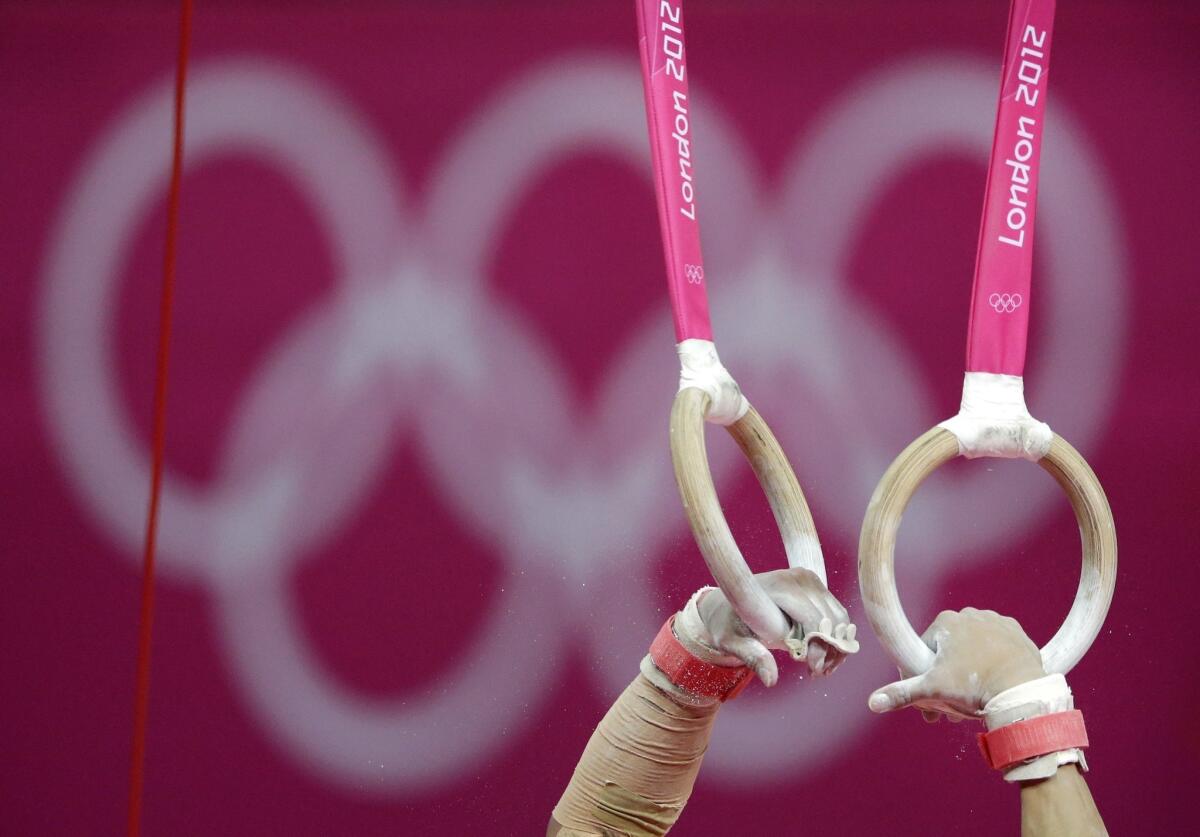Olympic medalists stay alive longer, study finds

- Share via
Athletes who win at the Olympics may bring home more than just a medal: They could add a few years to their life spans, scientists have found.
Winners of a gold (or silver or bronze) medal lived almost three years longer on average than their country’s general population — when matched for age, gender and birth year — according to a study released Thursday by the journal BMJ that examined some 15,174 Olympic medalists.
The research follows an earlier, controversial report of an “Oscar bump” that found that actors who had won Academy Awards for leading or supporting roles from 1929 onward lived an average of 3.9 years longer than actors who hadn’t snagged the coveted gold statue.
Scientists have wondered for years whether success somehow contributes to longevity. The new study examined decades’ worth of data gathered by an organization of Olympics enthusiasts that encompassed Olympic medalists from nine countries or groups of countries including the United States, Canada, Germany, Russia, France and a group of Nordic countries, from the first modern Games in 1896 up to 2010.
Births and deaths of the athletes were compared with “life tables” of the overall population from their own countries.
After 30 years, 8% more Olympic winners were alive on average than members of the general population, translating to an average gain of 2.8 years of life, said study coauthor David Studdert, a public health professor at the University of Melbourne in Parkville, Australia.
Although the study didn’t look at the causes of this advantage, experts suggested a few possibilities.
“Some elite sportspeople may be influenced by fame and glory, which could confer longevity through increased affluence,” said an editorial accompanying the research, “unless undermined by excessive partying and hazardous risk-taking behaviors.”
Alternatively, survival edges could simply be due to more healthful lifestyles and physical fitness.
Studdert said it wasn’t possible to examine the longevity fates of those who competed in the Olympics but did not win a medal because records for non-winners weren’t nearly as complete as those for winners.
The study found that athletes in endurance sports such as long-distance running were 13% more likely to be alive after 30 years than their peers in the general population. For athletes in power sports such as boxing and weightlifting, the advantage was just 5%.
The advantage varied by country too: Russian Olympic winners were 18% more likely to be alive after 30 years than their compatriots — more than double the overall advantage 8% for all countries studied. That probably reflects the differing life expectancies in those countries, Studdert said.
Adrian Bauman, a physical activity epidemiologist at the University of Sydney and coauthor of the editorial, said it was no great surprise that athletes in power sports, which include high-injury contact sports such as boxing, might not fare as well.
“Hippocrates said two things: He said walking is man’s best medicine,” Bauman told The Times, “and the other thing was, anything in excess is opposed to nature.”
The trick to gaining the health advantages of Olympians is to exercise in moderation, Bauman said.
Scientists know, he said, that “there’s a survival advantage of one to three years for physically active people, compared to inactive people in the general population. We make all this fuss about Olympic athletes, but in fact all we really need to do is go for a walk, bike in to work, go for a run in the afternoon … and we can get nearly equivalent benefits.”
More to Read
Go beyond the scoreboard
Get the latest on L.A.'s teams in the daily Sports Report newsletter.
You may occasionally receive promotional content from the Los Angeles Times.






